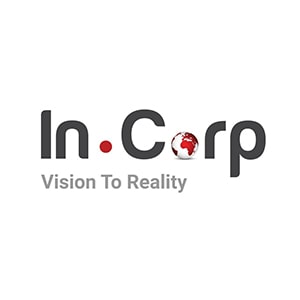
How to Incorporate a Company in the Philippines — 2024 Guide
The Philippine economy is experiencing robust growth, with GDP expected to rise 5.6% in 2023 despite global risks. Now is the time to start putting concrete plans to expand your company and establish a business establishment in the Philippines.
The Philippines saw a trend for growth in 2019 when it passed the Revised Corporation Code into law. The code seeks to make company incorporation easier and with fewer restrictions. The plan, of course, is to be on equal standing with economic powerhouse neighbors Singapore and Hong Kong — so this may be the perfect time to expand your business into the Philippines while it’s on the onset of a major business climate reform.
While the Philippine Government has made large strides in opening its economy to foreign investors, there are still some factors to consider. With that in mind, let’s look at how you can incorporate a company in the Philippines in 2023.
Please note that while many business entities are available in the Philippines (with their own requirements), this article will only focus on incorporating a domestic corporation, similar to a limited liability company.
Related Read: How to Set up a One Person Corporation in the Philippines
What Are the Requirements for Incorporating a Company in the Philippines?
Executive Breakdown
- Two to 15 directors or incorporators (majority need to reside in the Philippines)
- A minimum of four officeholders:
- President acting as the company’s signatory (does not have to be a resident of the Philippines)
- Corporate Secretary in charge of the company’s administration (must be a resident of the Philippines)
- Treasurer in charge of the company’s finances (must be a resident of the Philippines)
- Compliance Officer
Foreign Equity
A domestic corporation in the Philippines may have foreign equity, which is broken down into three brackets:
- >40.01% Foreign Equity
- <40% Foreign Equity
- 0% Foreign Equity (100% Filipino-owned)
Capital Requirements
Capital requirements are dependent on the foreign equity bracket mentioned above:
- 0% Foreign Equity → US$100 or approximately ₱5,000
- <40% Foreign Equity → US$100 or approximately ₱5,000
- >40.01% Foreign Equity → US$200,000 or approximately ₱4,800,000
Capital can be injected once the company has acquired a local bank account.
Capital requirements can be reduced by:
- Employing a minimum of 50 Filipino citizens → minimum capital requirement of US$100,000 or approximately ₱2,400,000
- Can prove the use of advanced technology in the company’s operations → minimum capital requirement of US$100,000 or approximately ₱2,400,000
- Exporting at least 70% of product → minimum capital requirement of US$100 or approximately ₱5,000
What Are the Steps for Incorporating a Company in the Philippines?
1. Register your Business with the SEC
The Philippine Securities and Exchange Commission (SEC) has quite a mature online system on their website for reserving and registering your company name and details. Simply create an account in the SEC’s Company Registration System to check if your desired company name is available, and then reserve/register that name.
If preferred, you can also reserve and register your company name at SEC’s Name Verification Unit in their office in Mandaluyong.
During this process, you will also need to provide the following documents to SEC:
- Your company’s Articles of Incorporation and By-laws
- Joint Affidavit of two incorporators
- Your company’s Treasurer’s Affidavit
If your application is approved, SEC will issue a Certificate of Registration to legitimize your company’s existence and allow you to start doing business in the Philippines.
Related Read: How to Set Up a Branch Office in the Philippines
2. Obtain Clearance from the Barangay
The Barangay is the district of your chosen region in charge of administration for the local government. Business establishments formed therein will need to have the local Barangay’s approval.
Your application for Barangay Clearance will require:
- Your Certificate of Registration from SEC
- Two valid forms of identification
- Proof of Address of your company’s local office (can be a Certificate of Land Title or Lease Contract)
3. Get Your Company’s Business Permit From the Local Mayor’s Office
For this step, you will have to visit your municipality’s local office and request a business permit. Along with your business permit application, you will also need to provide:
- Your Certificate of Registration from SEC
- Two valid forms of identification
- Proof of Address of your company’s local office (can be a Certificate of Land Title or Lease Contract)
- Your Barangay Clearance
4. Register Your Company With the Bureau of Internal Revenue
As part of your tax obligations in the Philippines, you’ll need to register your new company with the Bureau of Internal Revenue (BIR). To receive your company’s Taxpayer Identification Number (TIN), you’ll need to visit your company’s local Regional District Office (RDO) and do the following:
- Accomplish BIR Form 1903 – Application for Registration (For Partnerships/Corporations)
- In conjunction with your BIR Form 1903, submit your previously completed:
- Certificate of Registration from SEC
- Your company’s Barangay Clearance
- Your company’s Business Permit from the Mayor’s Office
- Proof of Address (Certificate of Land Title or Lease Contract)
- Valid IDs, if required
- If applicable, pay for your company’s Registration Form (BIR Form 0605) and Documentary Stamp Tax (BIR Form 2000)
- Register your account books and up-to-date invoices
- Finally, wait for your BIR Certificate of Registration (BIR Form 2303) to be issued
5. Register as an Employer
Finally, you need to register as an employer with the following government agencies:
- Social Security System (SSS) (for social security)
- Philippine Health Insurance Corporation (PhilHealth) (for health benefits)
- Home Development Mutual Fund (HDMF or Pag-IBIG Fund) (for housing loan benefits)
Related Read: How to Set Up a Regional Headquarters (RHQ) in the Philippines
Conclusion — Where to Next for Incorporating Your Business in the Philippines
The Philippine Government has made legitimate leaps and bounds in terms of simplifying the company incorporation process, with the express intention of making it easier for foreigners to do business in the Philippines.
However, while reasonably simple, it does take a large investment of your time that could be used better elsewhere, namely the running of your existing business.
If you would like to make the incorporation process completely seamless, we advise you to use a registered and reputable incorporation service provider in the Philippines.
We have made an effort to give you as much free information as possible in this article, but if you have any questions about incorporating your company in the Philippines, ask us below.
InCorp has been doing this for a long time all around Southeast Asia, so we’re sure to be able to save you time, money, and ensure a smooth experience.
Contact us to get a personal consultation to advise on your move to the Philippines – it is both our job and pleasure to help.
Frequently Asked Questions
How to start a business in the Philippines?
Starting a business in the Philippines (Domestic Corporation) is a simple 5-step process:
- Register your business with the SEC.
- Obtain clearance from the Barangay
- Obtain company’s business permit from the local Mayor’s office
- Register your company with the Bureau of Internal Revenue (BIR)
- Register as an employer
Do I need any special licence to do business in the Philippines?
Yes. All foreigners are required to obtain a License to Do Business from the SEC before starting any business operations in the Philippines.
Why is it a good time to expand or start a business in the Philippines in 2023?
The Philippines saw the trend for growth in 2019, when it passed into law the Revised Corporation Code, which seeks to make company incorporation easier and with fewer restrictions. With a constructive plan to be on equal standing with economic powerhouse neighbours Singapore and Hong Kong, this may be the perfect time to expand your business into the Philippines while it’s on the onset of a major business climate reform.
Set Up Your Company in the Philippines With Ease
With a full suite of business registration and corporate compliance services, we are dedicated to helping you enjoy a seamless company formation process.



1. What are the issues may happen with company In Corp Philippines which has already registered the business with the SEC & BIR in 2022 but yet still pending for the SSS, PhilHealth and HDMF approval? Could you advise what is the possibility?
2. Is it a Philippines Government Policy for employer/company must have at least hire 1st employee before registering for the SSS, Phil-health, and HDMF? Is this a standard legislative procedure or there is an update before? As there is no such information provided online or official website.
Thank you for your time & assistance on my queries.
Best regards!
To answer your queries please see
1. In general, there would be no issues so long as the company complies with the monthly reporting of BIR Form 1601C reflecting zero transactions as a basis that no employees yet.
2. Yes, registration to these three labor welfare agencies can only commence on or after the hired date of 1st employee.